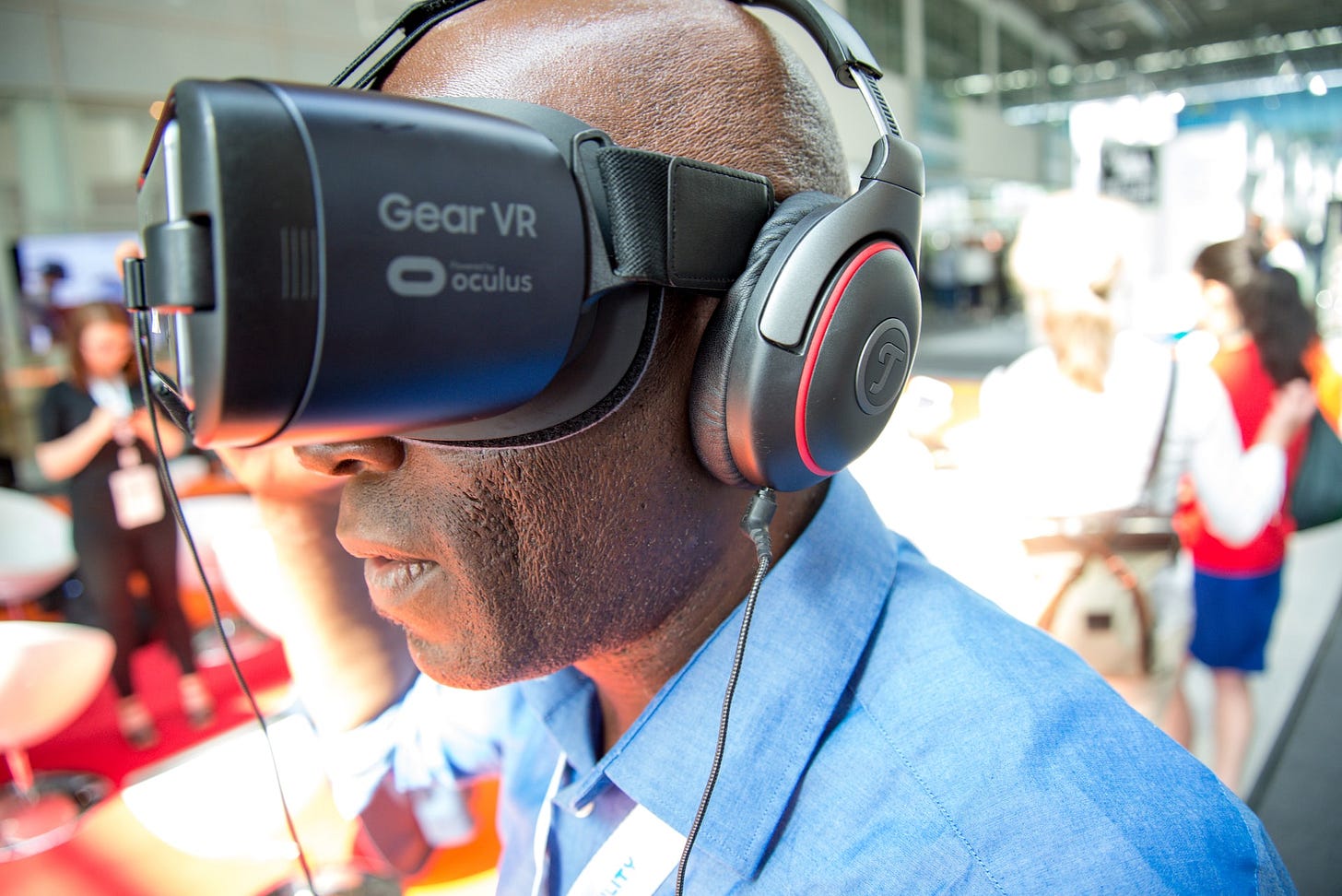‘In the Experience, Not Just Looking at It’: Does the UK Need Zuckerberg’s Metaverse?
With the companies ushering in the next iteration of the internet having difficulty realising their vision, Liam Murphy asks is it time to ask how society can truly benefit from these technologies?
With the companies ushering in what they claim to be the next iteration of the internet having difficulty realising their glorious vision, is it time to ask how society can truly benefit from these technologies?
Beyond the four walls of your home, the world moves and swells with activity. Whether you are in a bustling city, the suburbs or the sprawling countryside, there are aspects of the world that are far away or require complex planning to interact with. You can only make it so far in one day, even with the most refined transport links at your disposal.
There are family members scattered across the globe who you would love to catch up with, a work meeting that really requires you to make your presence felt and a couple of fun events that night that you know you won’t be able to make it to.
You pull your state-of-the-art Meta headset on. The metaverse fades into view all around you and you are reassured that in this new world, nothing is out of reach.
You share a morning with your extended family in Horizon Worlds. You interact via your customisable avatars (from the easily recognisable ones of your parents to the more fantastical choices of the younger members of the family), playing games and sharing real-life videos and pictures in the virtual space. Your cousin, who is on the other side of the world, makes an appearance and gives a virtual tour of the city he is currently staying in.
Your meeting goes well. Hosted on Horizon Workrooms, the attendees got a sense of your passion for the project – plus that digital art you chose for your meeting room space sparked a friendly initial conversation. Before you know it, it is time to don your best (virtual) threads and meet with your friends (their avatars) for a gig happening simultaneously in the real world and the metaverse. You attend a swanky afterparty and even get your hands on some exclusive merchandise for your avatar to wear (another conversation-starter for your next meeting maybe?)
Before you know it, you’re in your home space. It is perfect, down to every last retina-resolution pixel. After some much-needed personal time, you remove your headset and emerge back into the real world, with all its flaws and physical limitations.
This is the future, as Mark Zuckerberg sees it. Or at least, it was. Around a year and a half ago, following the rebrand from Facebook Inc. to Meta, the CEO presented a glimpse into what he believes is the future of technology and human connection, life in the metaverse.
Being an open-source technology – part of a putative new iteration of the internet commonly called 'Web3' – as Meta says on its own website: “The metaverse will be built by everyone.” But the company is certainly intent on being the frontrunner in the space. This means that it has the tough job of explaining what exactly the metaverse is and what it can do for the public at large.
In Zuckerberg’s own words, it is an “embodied internet where you’re in the experience, not just looking at it”. This reveal made it seem like the future of connection had been realised. Fast forward to today, however, and the path towards this new world has been challenging.



